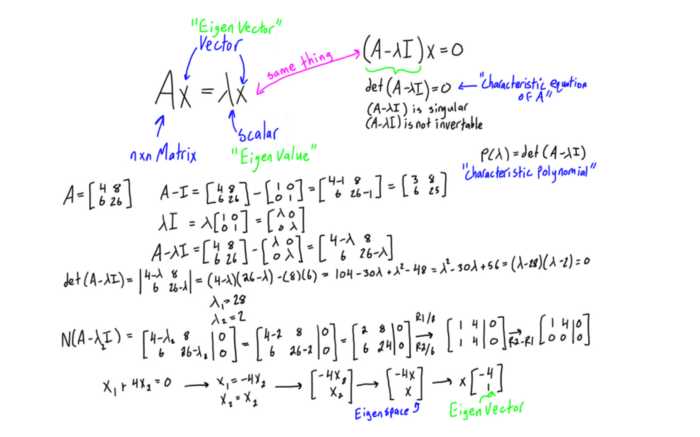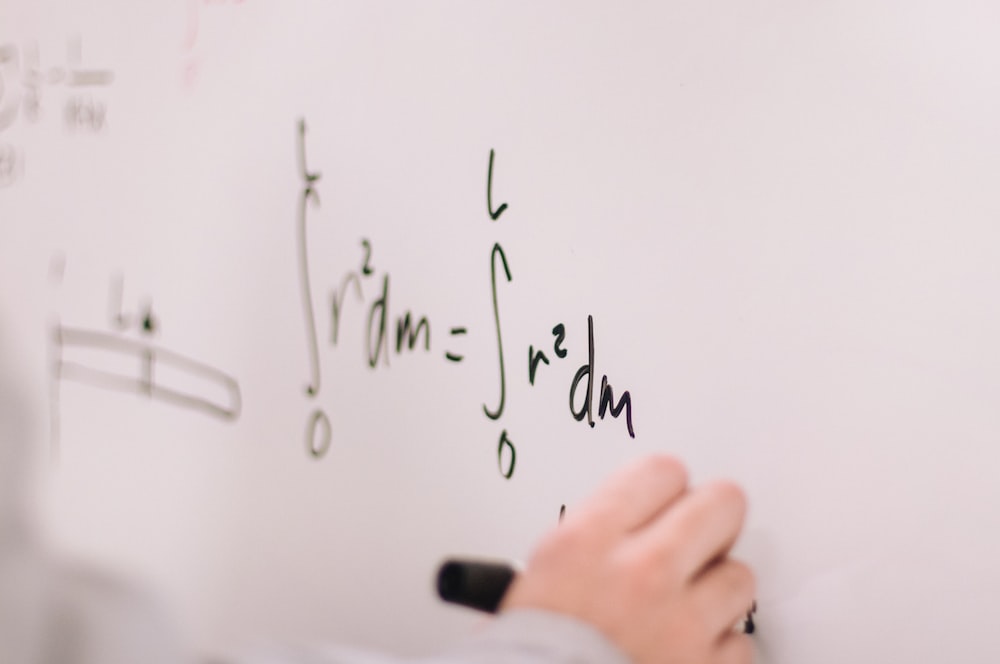บทความนี้ให้ภาพรวมของแนวคิดทางคณิตศาสตร์ที่จำเป็นสำหรับปัญญาประดิษฐ์ (AI) Jason Dsouza นักวิจัย AI และผู้เชี่ยวชาญด้านคณิตศาสตร์ เน้นย้ำถึงความสำคัญของการเรียนรู้พีชคณิต พีชคณิตเชิงเส้น แคลคูลัส สถิติและความน่าจะเป็น และทฤษฎีสารสนเทศเพื่อให้เก่ง AI บทความครอบคลุมแนวคิดพื้นฐานที่เราต้องเข้าใจในแต่ละฟิลด์ทางคณิตศาสตร์เหล่านี้ เช่น สเกลาร์ เวกเตอร์ เมทริกซ์ และเทนเซอร์ในพีชคณิตเชิงเส้น และอนุพันธ์ แคลคูลัสเวกเตอร์/เมทริกซ์ และอัลกอริทึมการไล่ระดับสีในแคลคูลัส นอกจากนี้ บทความยังกล่าวถึงความสำคัญของการประยุกต์ใช้เฉพาะ AI บางอย่างของแนวคิดทางคณิตศาสตร์เหล่านี้ เช่น การสลายตัวของค่าเอกพจน์ (SVD) และการวิเคราะห์องค์ประกอบหลัก (PCA) ในพีชคณิตเชิงเส้น และอัลกอริทึม Viterbi และตัวเข้ารหัส-ตัวถอดรหัสในทฤษฎีสารสนเทศ ผู้เขียนสรุปโดยระบุว่าการลงทุนเวลาในการทำความเข้าใจแนวคิดทางคณิตศาสตร์เหล่านี้สามารถช่วยให้เข้าใจ AI และการประยุกต์ใช้ได้ดีขึ้น
The article provides an overview of the essential mathematical concepts required in Artificial Intelligence (AI). The author emphasizes the importance of learning algebra, linear algebra, calculus, statistics and probability, and information theory to excel in AI. The article covers the fundamental concepts that one needs to understand within each of these mathematical fields, such as scalars, vectors, matrices, and tensors in linear algebra, and derivatives, vector/matrix calculus, and gradient algorithms in calculus. Additionally, the article mentions the significance of certain AI-specific applications of these mathematical concepts, such as Singular Value Decomposition (SVD) and Principal Component Analysis (PCA) in linear algebra, and the Viterbi algorithm and Encoder-Decoder in information theory. The author concludes by stating that investing time in understanding these mathematical concepts can help one gain a better understanding of AI and its applications.
คณิตศาสตร์ทั้งหมดที่คุณต้องรู้ในปัญญาประดิษฐ์
Jason Dsouza ผมเป็นนักวิจัยด้าน AI และได้รับอีเมลสองสามฉบับถามผมว่า ปัญญาประดิษฐ์ต้องใช้คณิตศาสตร์มากแค่ไหน ผมจะไม่โกหก: AI ใช้คณิตศาสตร์มากมาย และนี่คือหนึ่งในเหตุผลที่ AI ทำให้ผู้เริ่มต้นหลายคนท้อใจ หลังจากการค้นคว้า และพูดคุยกับผู้เชี่ยวชาญหลายคนในสาขานี้ ผมได้รวบรวมคำแนะนำ ซึ่งครอบคลุมพื้นฐานทั้งหมดของคณิตศาสตร์ที่คุณจำเป็นต้องรู้ แนวคิดที่กล่าวถึงต่อไปนี้ จะครอบคลุมหลายภาคการศึกษาในวิทยาลัย แนวคิดเหล่านี้เป็นหลักการสำคัญที่คุณต้องรู้ คู่มือนี้ช่วยชีวิตผู้เริ่มต้นด้าน AI ได้อย่างสมบูรณ์ คุณสามารถค้นหาแหล่งข้อมูลเหล่านี้ได้จาก Github ของผม: Jason’s AI Math Roadmap

1. Algebra You Need to Know for AI ความรู้เรื่องพีชคณิตอาจเป็นพื้นฐานของคณิตศาสตร์โดยทั่วไป นอกจากการดำเนินการทางคณิตศาสตร์ เช่น การบวก การลบ การคูณ และการหาร คุณจะต้องรู้สิ่งต่อไปนี้:
* Exponents
* Radicals
* Factorials
* Summations
* Scientific Notations

2. Linear Algebra You Need to Know for AI พีชคณิตเชิงเส้นเป็นเครื่องมือคำนวณทางคณิตศาสตร์หลักในปัญญาประดิษฐ์และในสาขาอื่นๆ ของวิทยาศาสตร์และวิศวกรรมศาสตร์ ด้วยฟิลด์นี้ คุณจะต้องเข้าใจวัตถุทางคณิตศาสตร์หลัก 4 รายการและคุณสมบัติ:
* Scalars — a single number (can be real or natural).
* Vectors — a list of numbers, arranged in order. Consider them as points in space with each element representing the coordinate along an axis.
* Matrices — a 2-D array of numbers where each number is identified by 2 indices.
* Tensors — an N-D array (N>2) of numbers, arranged on a regular grid with N-axes. Important in Machine Learning, Deep Learning and Computer Vision.
* Eigenvectors & Eigenvalues — special vectors and their corresponding scalar quantity. Understand the significance and how to find them.
* Singular Value Decomposition — factorization of a matrix into 3 matrices. Understand the properties and applications.
* Principal Component Analysis (PCA) — understand the significance, properties, and applications. Properties such as the Dot product, Vector product and the Hadamard product are useful to know as well.

3. Calculus You Need to Know for AI เกี่ยวข้องกับการเปลี่ยนแปลงพารามิเตอร์ ฟังก์ชัน ข้อผิดพลาด และการประมาณค่า ความรู้ในการทำงานของแคลคูลัสหลายมิติมีความจำเป็นในปัญญาประดิษฐ์ ต่อไปนี้เป็นแนวคิดที่สำคัญที่สุด (แม้ว่าจะไม่ครบถ้วนสมบูรณ์) ในแคลคูลัส:
* Derivatives — rules (addition, product, chain rule, and so on), hyperbolic derivatives (tanh, cosh, and so on) and partial derivatives.
* Vector/Matrix Calculus — different derivative operators (Gradient, Jacobian, Hessian and Laplacian)
* Gradient Algorithms — local/global maxima and minima, saddle points, convex functions, batches and mini-batches, stochastic gradient descent, and performance comparison.

4. Statistics & Probability Concepts You Need to Know for AI หัวข้อนี้ อาจกินเวลาส่วนใหญ่ของคุณ Statistics และ Probabilities สาขานี้ ไม่ใช่เรื่องยาก ดังนั้นจึงไม่มีเหตุผลใด ที่คุณไม่ศึกษาเรื่องนี้
* Basic Statistics — Mean, median, mode, variance, covariance, and so on.
* Basic rules in probability — events (dependent and independent), sample spaces, conditional probability.
* Random variables — continuous and discrete, expectation, variance, distributions (joint and conditional).
* Bayes’ Theorem — calculates validity of beliefs. Bayesian software helps machines recognize patterns and make decisions.
* Maximum Likelihood Estimation (MLE) — parameter estimation. Requires knowledge of fundamental probability concepts (joint probability and independence of events).
* Common Distributions — binomial, poisson, bernoulli, gaussian, exponential.

5. Information Theory Concepts You Need to Know for AI นี่เป็นสาขาสำคัญที่มีส่วนสำคัญต่อ AI และการเรียนรู้เชิงลึก หลายคนที่ยังไม่รู้จัก ให้คิดว่ามันเป็นการผสมผสานระหว่างแคลคูลัส สถิติ และความน่าจะเป็น นั่นเอง
* Entropy — also called Shannon Entropy. Used to measure the uncertainty in an experiment.
* Cross-Entropy — compares two probability distributions and tells us how similar they are.
* Kullback Leibler Divergence — another measure of how similar two probability distributions are.
* Viterbi Algorithm — widely used in Natural Language Processing (NLP) and Speech.
* Encoder-Decoder — used in Machine Translation RNNs and other models.
คณิตศาสตร์เป็นเรื่องสนุก!
หากคุณรู้สึกกลัว เมื่อพูดคำว่า “คณิตศาสตร์” คุณอาจไม่สนุกกับปัญญาประดิษฐ์มากนัก แต่ถ้าคุณยอมสละเวลา เพื่อพัฒนาความคุ้นเคยกับหลักการที่เป็นพื้นฐานของแคลคูลัส พีชคณิตเชิงเส้น สถิติ และความน่าจะเป็น ก็จะไม่มีอะไรมาขัดขวางคุณในการเข้าสู่ AI ได้ — แม้แต่คณิตศาสตร์ ก็ตาม
ป.ล.: คณิตศาสตร์เป็นเรื่องสนุกจริงๆ เมื่อคุณเจาะลึกลงไปในวิชาคณิตศาสตร์ อย่าลืมเข้าใจความสวยงามของแนวคิดทางคณิตศาสตร์และผลกระทบที่มีต่อบางสิ่ง ในไม่ช้า คุณจะได้แบ่งปันความหลงใหลที่นักคณิตศาสตร์และนักวิทยาศาสตร์ AI หลายคนมี!

